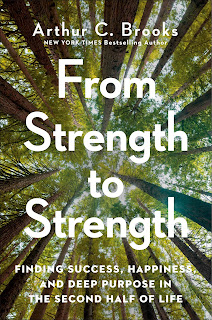The Hard Problem Of Consciousness With Mr. Simplicity
The Hard Problem Of Consciousness With Mr. Simplicity
Consciousness is an emergent, substrate-independent, phenomenon that gives one the ability to be aware of one's surroundings and surroundings in general. It also involves the ability to perceive, think, and feel as an individual entity that is made up of many, many parts working as a whole. It’s a concept that has perplexed philosophers, neuroscientists, and psychologists for centuries. Even with the advancements in science, the hard problem of consciousness remains unsolved and leaves many unanswered questions.
The hard problem of consciousness was first introduced by philosopher, David Chalmers, in 1995. The problem is known as “hard” because it is difficult to fully explain and understand. It is not a matter of trying to discover how the brain works; rather, it's the challenge of explaining why subjective experience exists and why it feels the way it does.
How does a physical brain generate subjective experience?
The hard problem is not limited to the question of whether a machine can be conscious. Instead, it goes deeper, asking how neurons and tissues in the brain generate subjective experience.
The human brain consists of complex and intricate biological systems that process and interpret stimuli from the environment, create memories, and maintain our sense of self. The hard problem of consciousness arises because we still do not know how these experiences are generated.
There are different approaches to exploring the hard problem of consciousness. The two main approaches are the reductionist approach and the non-reductive approach.
The reductionist approach proposes that consciousness can be reduced to physical, chemical, or biological processes. This approach comes from the view that the brain is a machine that can be studied like any other physical system. Reductionism posits that if we could understand all the physical processes in the brain, we could explain consciousness.
The non-reductive approach, on the other hand, suggests that consciousness cannot be reduced to physical processes alone. This approach posits that consciousness is a property of the universe and cannot be explained solely by physical laws.
One of the biggest challenges of the non-reductive approach is that it is difficult to explain how something that is non-physical can affect the physical world. However, proponents of this approach argue that in order to fully understand consciousness, we need to consider both the physical and non-physical aspects of consciousness.
Qualia – the hard problem of subjective experience
Another aspect of the hard problem of consciousness is the problem of qualia. Qualia are subjective experiences such as the color of a particular object, the sensation of pain, or the taste of food. These experiences are unique to each individual and cannot be objectively measured or quantified using scientific methods.
The problem of qualia is how to explain these subjective experiences in physical terms. Even if we could explain how neurons in the brain process information, it is difficult to explain how those physical processes give rise to subjective experiences.
The problem of continuity – how is the self maintained?
Another aspect of the hard problem of consciousness is the problem of continuity. The problem of continuity arises from the fact that our experience of consciousness is continuous or uninterrupted, even though our brain processes information in discrete and isolated moments.
Our brains are constantly processing information, and each new experience is separate from the previous one. Yet, we experience ourselves as a single, continuous entity. How is this continuity achieved, and how is the sense of self maintained?
The problem of free will – do we have control over our thoughts and actions?
Finally, the hard problem of consciousness also involves the problem of free will. Free will is the ability to make decisions and act on them independently of external factors.
The question of free will arises because our thoughts and actions are thought to be determined by the physical processes in our brain. If our thoughts and actions are predetermined by physical processes, do we truly have free will?
The hard problem of consciousness is an ongoing challenge that has puzzled scientists, philosophers, and psychologists for centuries. The problem is difficult because it involves explaining subjective experiences in physical terms and understanding how consciousness arises from physical processes. However, though the problem remains unresolved, continued research and study hold promise for gaining further insights into our self discovery of human consciousness.




Comments
Post a Comment